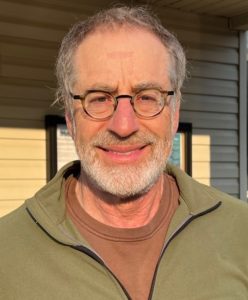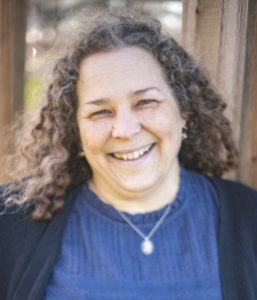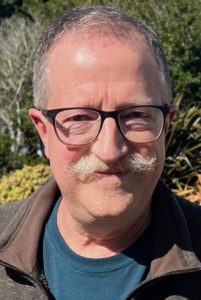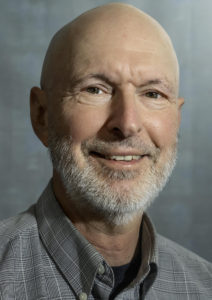By KENNETH LIPP/YachatsNews
YACHATS – Every city councilor for the past five years has agreed that Yachats needs to find a source of water for the lean summer months and to meet future demand. But agreeing on the first steps toward doing so has proven a challenge.

Yachats’ new mayor Craig Berdie said during the city council’s second meeting of the year Wednesday that he will keep the issue of water security at the forefront by putting it on their agenda once a month.
Berdie asked the council to consider authorizing a task force that would report on future supply predictions, watershed management and potential new sources. The city currently draws its water from two creeks near its water treatment plan that generally run low during August and September.
Berdie made a similar proposal as a council member three years ago, but it was turned down because the city had just contracted to do two state-required water plans.
Once those plans were done, two members of a Yachats non-profit, resurfaced the issue with their own proposal. The city’s Public Works & Streets Commission asked the council to approve it last March, and the council was supportive.
John Purcell, a View the Future board member, and John Theilacker, chair of the Planning Commission and co-chair of View the Future, were in the audience in the Yachats Commons civic room Wednesday. They said they’d seen the mayor’s proposal and it covered much of the same territory as their own from last March.
Berdie’s proposed task force would report to the city council at regular intervals. Its tasks would include determining the best forecast for rainfall during the next 20-30 years, developing demand and response scenarios, and studying ways to augment supply.
Possible supply solutions include paying the Southwest Lincoln County Water PUD, which serves the area between Waldport and Yachats, for water during the low months. An interconnect between the districts already exists.
The city could also propose a three-way interconnect with Waldport and Southwest Lincoln, look as far as Newport for water, expand storage capacity or find new freshwater sources, Berdie suggested.
The task force would have five to seven members — city staff with water expertise, volunteers from city commissions, Yachats citizens with interest and expertise, and residents of the 97498 ZIP code with expertise in regional water.
“This is a proposal, only that, we’re not going to vote on it today,” Berdie said. “This is a matter that came up often during my campaign that people wanted to make sure was being addressed. And so this is one possible way of moving forward with that existential issue that we have around water.”
The task force would operate for a year, after which council could continue or dissolve it.
Manager wants staff report first
City manager Heide Lambert said the work group would mean a change from normal operating procedures. Typically, subcommittees advise commissions, and commissions make recommendations to city council.

“But I also would like to share with council that we have a water lead who’s worked for the city of Yachats for over 25 years,” Lambert said, referring to water treatment plant operator Rick McClung. She said McClung was qualified to make better pay elsewhere but was dedicated to Yachats, and she read from a list of his accomplishments with the city.
Lambert recommended the council approve McClung’s time being used to prepare a report “sharing his history and recommendations before you vote on adding another committee.”
McClung was supportive of Purcell and Theilacker’s proposal last year. Councilor Ann Stott asked how that initiative, which would have involved a committee that did not report directly to council, converged with the mayor’s.

Theilacker said they brought their proposal to Lambert and “it didn’t seem like what we had was going to mesh with what she hoped for the city.” The conversation ended at that point, he said.
“View the Future supports this proposal here before you today,” he said.
Lambert asked if the group had brought those issues to the Public Works & Streets Commission. Theilacker said they did and it won the commission’s and later the previous council’s support, “and that was kind of where it ended.”
“I remember it was brought to council when I first came and council directed me to get more information from you and work with you,” Lambert said.
She asked if Theilacker thought his seats on the View the Future board, planning commission and advising the water task force constituted conflict of interest.
“Some people might say I’m crazy,” he replied.
“I think it’s important that the mayor and council know that we just want to help,” Purcell said. “We’ve got a lot of experience in looking at issues and challenges that the city has.”
Councilor Mary Ellen O’Shaughnessey said she supported the effort and didn’t understand why it was previously rejected. Her only concern was whether a task force might step on staff toes in performing its duties.
Councilor Greg Scott said he understood water security was an issue during the election, but he felt that the proposed objectives of the water task force were administrative and the job of the city manager.

“I just want to be on the record that I agree with the mayor clearly that the big objective is we need to come up with some way to increase water supply,” Scott said. “Because everything we know about climate change says that is going to be the big challenge facing us.”
Berdie made a motion to authorize McClung to use time writing a report on how public works could use a water task force, as ultimately recommended by Lambert.
Scott said he thought the council should ask Lambert to come back to them with recommendation “and let her decide how best to achieve that.” Berdie withdrew his motion to allow Scott to make his motion.
Councilor Catherine Whitten-Carey asked if they should add a time frame to deliver the report. Scott said he thought it was up to Lambert to decide how much time is appropriate.
“I would suggest that, since this is simply assigning tasks, that we should get a regular report on a monthly basis, at least,” Berdie said.
“You’ve got to trust the city manager to use good judgment,” Scott replied. “My goodness.”
All voted “yes” on the motion except for Berdie, who said he still felt there should be a time frame. Lambert said she would deliver the report as soon as she could.
- Kenneth Lipp is YachatsNews’ full-time reporter and can be reached at KenLipp@YachatsNews.com



This is a crucial issue. All praise to the new mayor for supporting what’s been attempted before, and what can happen, more expeditiously, now. I’d like to hear from the city manager more what issues she has with this. It is very vague in this article. I know there’s a lot going on, but water storage is crucial, increasingly so to every community, not just our’s.
Water issues are not going away, and we definitely need to find other sources and add more storage. Not sure why anyone would oppose. One committee after another, waste of time and money. Let Berdie move forward.
The story makes the city manager look like a hurdle to solving this problem. That can’t be the case. The goal of city employees must be to solve problems. Water is a basic city function. So this problem will only be solved with full cooperation of paid and volunteer Yachatians.
So let me get this right … we have two state required water plans along with a third plan completed by a Yachats non-profit group and the solution proposed by the mayor is to authorize a task force that would report on future supply predictions, watershed management and potential new sources? It sounds like of the three plans already prepared we may have a solution in front of us. I’m not sure how yet another task force and an ongoing monthly agenda item will solve the problem. How about we focus on the three existing proposals and make a decision?